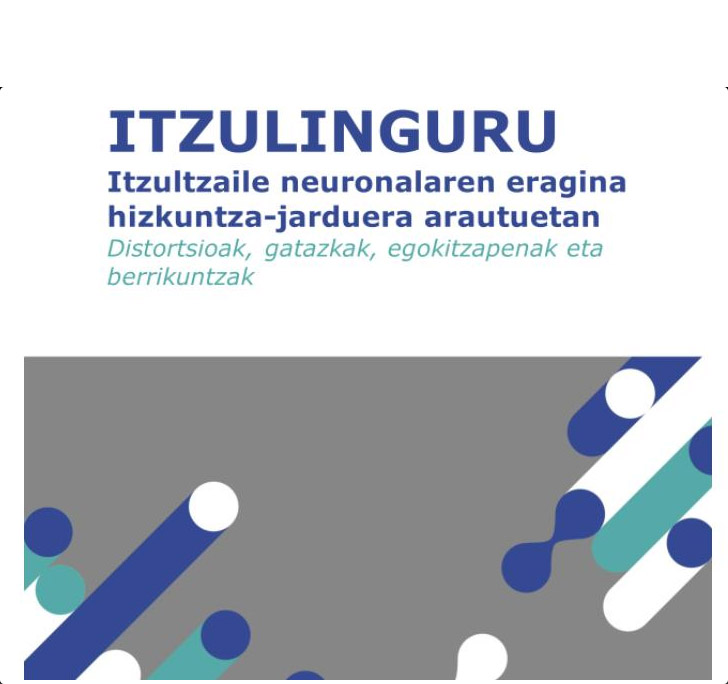
Translator research: how does advanced machine translation affect Basque?
- The Cluster of Socioluinguistics, with the collaboration of several institutions and in the work elaborated by Asier Ambeka, Eduardo Apodaka and Asier Basurto, has published the results of the project called Itzulerem. They have studied the influence of neural translators (state-of-the-art automatic translators that have reached an excellent level in Basque) on regulated linguistic activities.
Sustatu
2025eko otsailaren 14a

It is a complete report, full of opinions and facts, which you can find here in its entirety. A summary in English has also been published. The following may be mentioned among the main conclusions.
- Neural translators speed up and facilitate the production of texts, but require strict quality control. Training is also needed.
- They increase efficiency in organizations and companies, but an orderly regulation is needed in these organizations.
- Pre-editing and post-editing of texts are essential to ensure adequate quality.
- The neural translator transforms linguistic ideologies, representations, discourses and attitudes. It implies a blurring of the definition of the concept of creative language.
The authors also add to the report forecasts for the near future. For one example:
- Writing and reading will be transformed: texts will become increasingly simple and readable, driven by machine translation.
- Neural translators will become "invisible": their functioning will be so integrated into different systems that users will inadvertently use them. As a result, translation processes and language decisions will be hidden in devices and software.
- The main challenge may be that the motivation to learn languages may decrease. Strategies will have to be developed to compensate for this.
- That, despite the facilities offered by neural translators, strategies and criteria are needed to use them for the benefit of the Basque language revitalization process.
To know more: https://soziolinguistika.eus/eu/proiektua/itzulinguru/